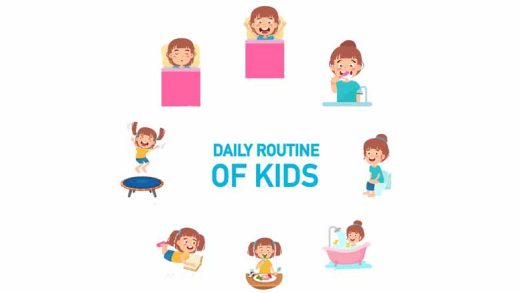If you’re a parent, you surely go out of your way to ensure your children receive vaccinations, wholesome meals, and assistance with homework. But how often do you consider how to support the mental health of your child?
When it comes to managing stress, behaviour, and academics, a child’s mental health is equally as vital as their physical health. According to projections from the Centers for Disease Control and Prevention (CDC), 1 in 5 youngsters will have a mental health illness at some point during the year. You can take steps to help keep your child as mentally healthy as possible, even if not all mental health problems can be avoided.
Ensure Your Mental Well-Being
Taking care of your own mental health is one of the best things you can do to maintain the child’s mental health. You’ll not only be setting an example to improve mental health practices, but you’ll also be fostering a healthier atmosphere for your child.
Children are more prone to experience mental health problems of their own when their parents do not receive treatment for their mental health difficulties. This implies that you should consult your doctor if you are experiencing depressive symptoms, lack of energy, or observe changes in your eating or sleeping patterns. These signs may indicate that you are experiencing anxiety or despair.
Establish Trust
Building a solid connection with your children starts with establishing trust, which is important for child mental health. Creating a feeling of security and safety is one method to build trust.
This is attending to your child’s physical and emotional requirements, including feeding, drinking, keeping them warm or cold, and tending to their fears, anxieties, or melancholy. Go ahead and speak what you mean and do what you say. Your children rely on you to be dependable, sincere, and kind. Look for ways to show them how much you care and that they can rely on you to take care of their health and safety.
Promote Harmonious Partnerships
While the bond between children and their parents is important, it’s not the only one. A youngster in good mental health will maintain a variety of relationships with friends, neighbours, and extended family members like grandparents and cousins.
Give your kids the chance to interact with others, especially their closest friends, even if you’re the kind of parent who enjoys spending time alone with them. Keeping up these connections can have a profound impact on your child’s mental health.
Be Consistent
It is impossible to exaggerate the value of consistency. Youngsters are drawn to consistency and order. They want to know what the next activity entails, what happens if they disobey the rules, and what rewards they will receive for good behaviour.
Divorce and other major life changes, such as relocating to a new city, can cause turmoil and be particularly difficult for children. They frequently become withdrawn, tense, or start acting out when they can’t handle their emotions. Your children will be better able to control their emotions if you uphold regular discipline and make sure they understand daily expectations.
Instruct in Stress Management
You can shield your child from trauma such as abuse and bullying, but you cannot stop them from feeling stressed. Stress management is a natural part of life, and teaching your child appropriate coping mechanisms now will help them succeed later on.
Assist your youngster in making their stress management hobbies unique. While some kids find that journaling helps them cope with stress, other kids might choose to talk to a friend when they’re having trouble. Decide in advance what precise actions your child can take to manage their stress levels during difficult situations.
Create Healthful Routines
Not only can a nutritious diet, restful sleep, and regular exercise improve your child’s physical health, but they also have a significant positive impact on their mental health. Instil in your children the value of forming wholesome habits that will maintain both their physical and mental well-being.
Empathy and mindfulness, according to research, can have a significant effect on mental health. Thus, make mindfulness exercises a part of your everyday routine. You might also enhance the mental health of the entire family in the process.
Boost Self-Esteem
It benefits a parent in two ways to assist their child in building self-esteem, as this can significantly improve mental health. Initially, you should contribute to raising your child’s self-esteem. Secondly, you want to instruct your kids on how to grow in confidence. To carry out that:
- Give sincere yet reasonable compliments. Adjectives like “you’re the smartest kid in the whole school” are not going to support a positive sense of self-worth in your youngster. Don’t compliment someone on qualities they can’t control, like their intelligence or appearance. As an alternative, acknowledge their effort and avoid overly flattering them (children are able to see through them).
- Provide chances for self-sufficiency. When kids can do tasks on their own, it boosts their self-esteem. Therefore, when kids can demonstrate competence, they feel good about themselves, whether you’re teaching them how to take an online class or you’re just showing them that you trust them to create their own grilled cheese sandwich.
- Assist your child in cultivating positive self-talk. It could be tempting to respond with an affirmative, “Of course, you will,” when your child says something along the lines of, “I’ll never be good at maths.” But that won’t assist them in creating a more positive internal conversation. Asking your youngster questions like “What could you do to get better?” or “What’s the evidence that’s not true?” will help you redirect their negative comments. Encourage your child to make better decisions.
Engage in Play Together
A physically and intellectually healthy child needs to play. To be honest, adults need to play too! Set aside some time to give your child your whole attention while ignoring work, chores, and other commitments. Your child will learn that they are valuable when you take the time to do this.
Additionally, research has demonstrated that youngsters can gain from healthy play in a variety of ways. For example, a study discovered that when a child plays, their chances of being joyful increase and their risk of anxiety and sadness lowers.
Take proactive steps to maintain the best possible mental wellness for your child. However, discuss your worries with your child’s doctor if you notice any red flags. For problems to be treated as successfully as possible, early intervention may be essential. You can also contact us at Kangaroo Kids International Preschool for further assistance.









